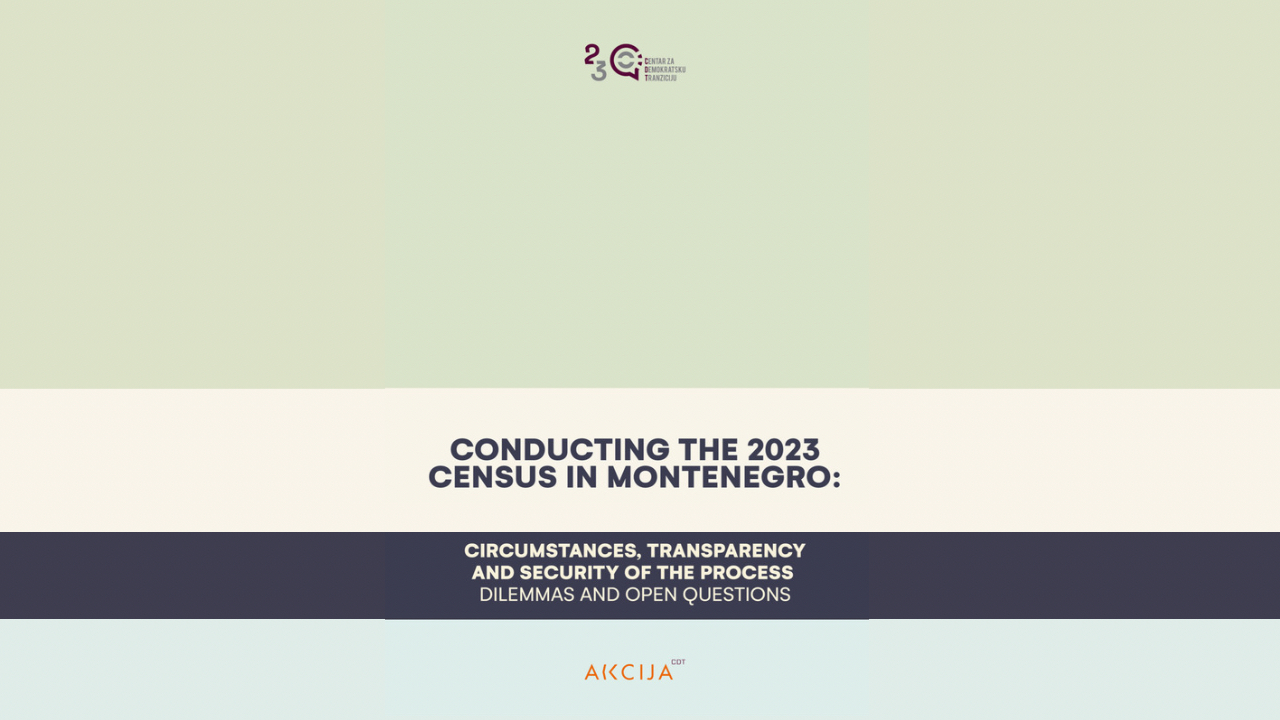Montenegro is awaiting a census of population, households and dwellings in November 2023.
The dramatic developments related to this most significant statistical action have been ongoing since 2021. After the impossibility of conducting the census due to the introduction of temporary financing at the beginning of that year, the 42nd Government of Montenegro drafted the Law on Census and submitted it to the Parliament at the beginning of 2022. However, political events in that year unfolded rapidly, resulting in the subsequent fall of the 42nd Government, the election of the 43rd, and a vote of no confidence in the 43rd Government, which remains in a technical mandate to this day.
In December 2022, the Parliament of Montenegro adopted the Law on the Census of Population, Households and Dwellings (the Law) in which, contrary to the established practice, the period of conducting the census was not specified, giving the Government the authority to define it through a by-law. In February 2023, the Government, in a technical mandate, issued a Decree stating that the census would be held in the period from November 1 to November 15.
Although the political aspect of making this decision was very complex and even though it was made in the lead-up to the presidential and parliamentary elections, it seemed that, after 12 years, Montenegro would acquire the necessary data for the development of state policies.
However, since things are not that simple in our country, this process remains burdened with numerous issues and potential critical points: various dilemmas about the census have been raised in public, and serious accusations and doubts have been expressed. We have heard requests for postponement, threats of boycotts have emerged, calls to obstructions have been made, and campaigns have been launched suggesting to citizens how they should identify nationally and in terms of religion.
In these circumstances, and considering the experience with census actions and our membership in the Council of the Statistical System, we were of the opinion it was important to prepare a document in which we try to resolve some of the dilemmas existing in the public, to address important issues that have been little discussed so far, to present publicly our suggestions for improving the census process, regardless of its date.
The subject of our interest is, first of all, the analysis of the overall environment and transparency of the census procedure, the influence of partitocracy on the network of instructors and enumerators and the safety of the process from the perspective of adhering to important statistical laws, principles, and standards. We have only sporadically addressed the preparedness of the Statistical Office (Monstat) regarding the quality of the preparation and implementation of the Methodology for preparing, organizing, and conducting the census (Methodology), wishing to draw their attention to the fact that in this process they have taken on the controversial and sensitive role of advocating and defending politicians’ decisions on the public stage, decisions that essentially do not depend on them. We leave the detailed analysis of the methodology and its immediate implementation to experts who are more directly involved in this process.
We remain open to all well-intentioned suggestions, criticisms, and public debate on this analysis.
The CDT team



